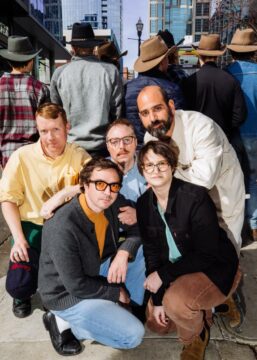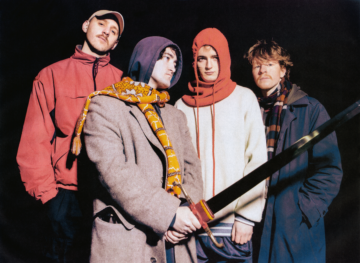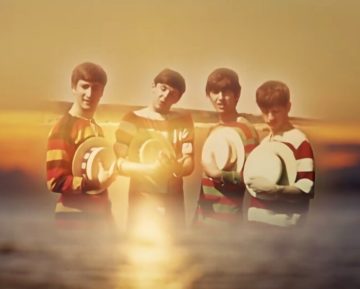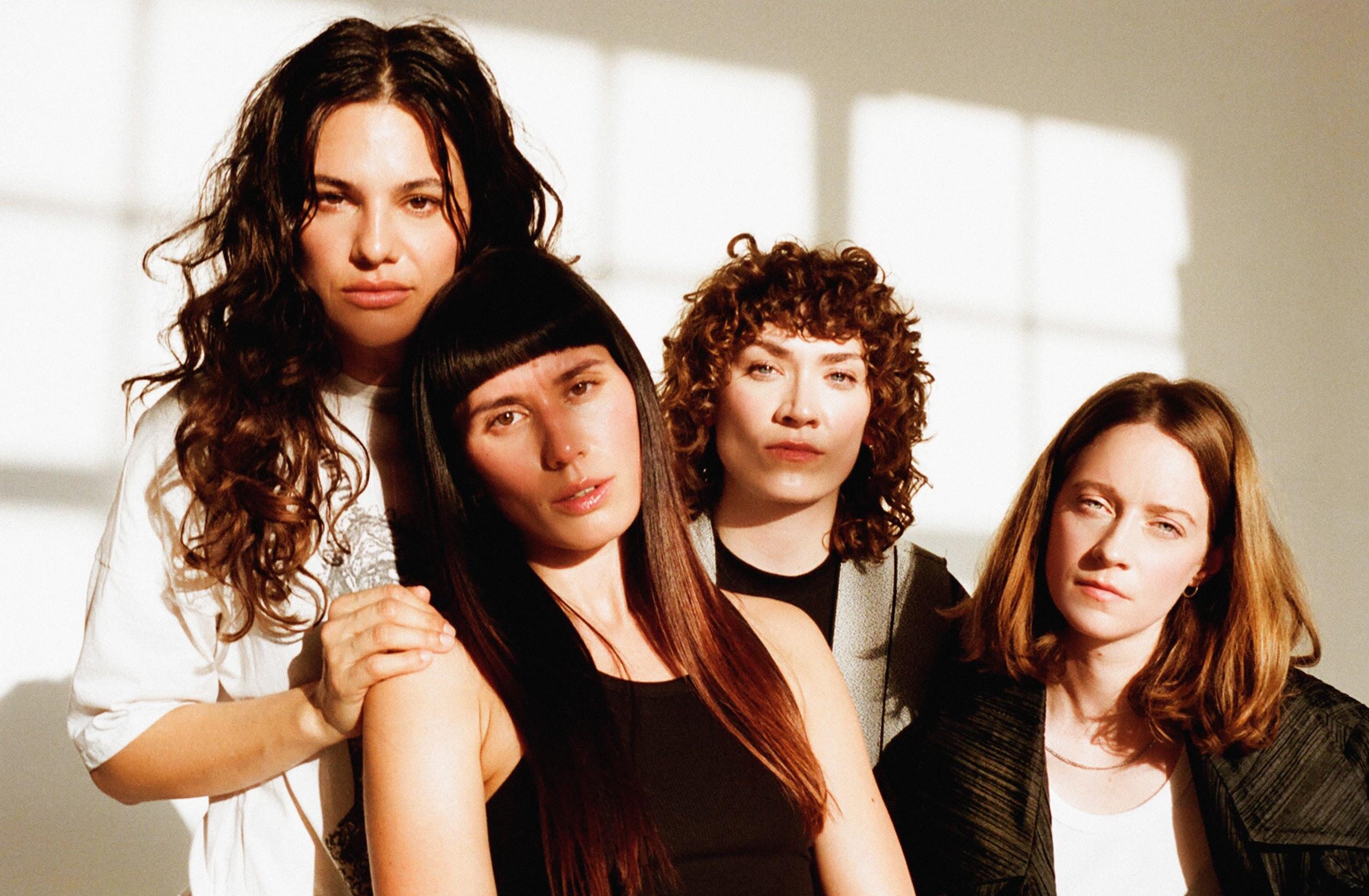
Four-piece ensemble Friedberg is the brainchild of Austrian-born Anna Friedberg. Prior to the band’s inception, Anna charted a solo course under the moniker Anna F., opening for legends like Lenny Kravitz and experimenting with her sound across Europe’s dynamic music scene.
Friedberg’s journey from a whimsical idea during a stay in California’s Joshua Tree to a full-fledged band is a testament to the unpredictable nature of music chemistry and the shared vision among its members: Anna Friedberg (vocals, guitar), Emily Linden (guitar), Laura Williams (drums), and Cheryl Pinero (bass). Their sound—a magnetic blend of alternative pop with hints of dance–punk—is punctuated by Anna’s evocative lyrics and a robust live performance ethos.
As they release their long-awaited debut album, punctuated by the hit singles ‘Go Wild’ and ‘My Best Friend’, Friedberg have not only captured the imagination of listeners but also garnered critical acclaim, securing a spot on prominent stages like SXSW and supporting major acts such as Placebo and Hot Chip.
In an intimate interview with whynow, Anna Friedberg delves into the band’s origin, their creative process, and the cultural nuances that shape their music and lyrics. Here’s a closer look at the world of Friedberg through the lens of their charismatic frontwoman.
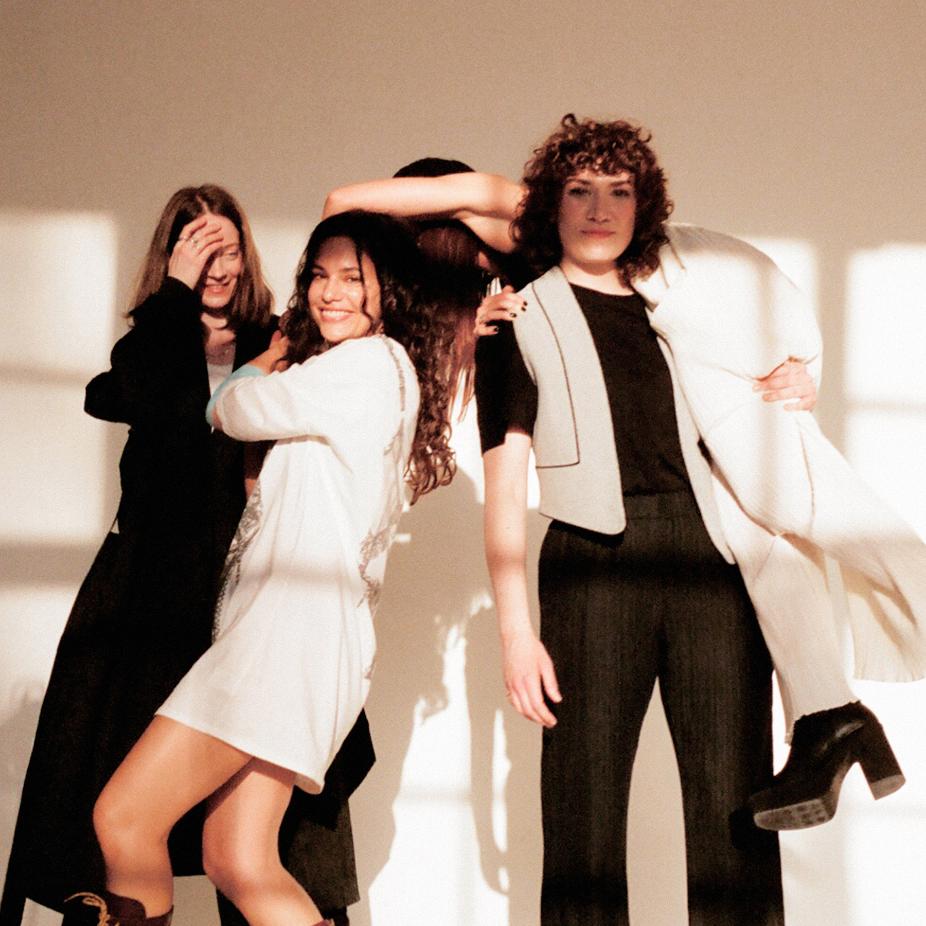
Interview
whynow: Hello Anna! Thanks for taking the time out to speak to us. Can you start by telling us the Friedberg origin story?
Anna Friedberg: If I start with my story, I have to start in Friedberg, my hometown in Austria. It’s a super small village with 2000 people, where I lived my whole life until I was 18. I was a really good classical guitar player when I was 12 years old, and I always like to say I’ve never played better than when I was that age because I stopped practising as much after that! Then, at the age of 15, I’d lock myself in my room because I was so shy and begin singing and writing little songs on my own.
After that, I studied English and American literature in Vienna and worked as a sports journalist on the weekends to pay my rent (I played ice hockey, football and tennis when I was younger). Then, I moved to Berlin and began a solo career as Anna F., where I was on tour with Lenny Kravitz. I released two solo albums but felt it wasn’t ever really what I wanted to do. I suppose at that time, I didn’t know what I actually wanted at all, but I thought it would be nice to have a band.
whynow: How did you go about piecing Friedberg the band together?
Anna Friedberg: I’d spent some time in Joshua Tree, California, before moving to London from Berlin. When I arrived I didn’t know anyone so I asked a friend of mine at a music label if he knew of any musicians. He’d seen a guitar player in the theatre and said she was amazing and arranged for us to meet. That was Emily. Then Emily’s friend, Laura, who’s a drummer, joined, and then we put out a notice for a bass player, who turned out to be Cheryl and who’s also German!
We had maybe two rehearsals together and then decided to perform live at a secret show at Spice of Life in Soho, and it went so well and sounded so good. No soundcheck or anything, we just turned up and played.
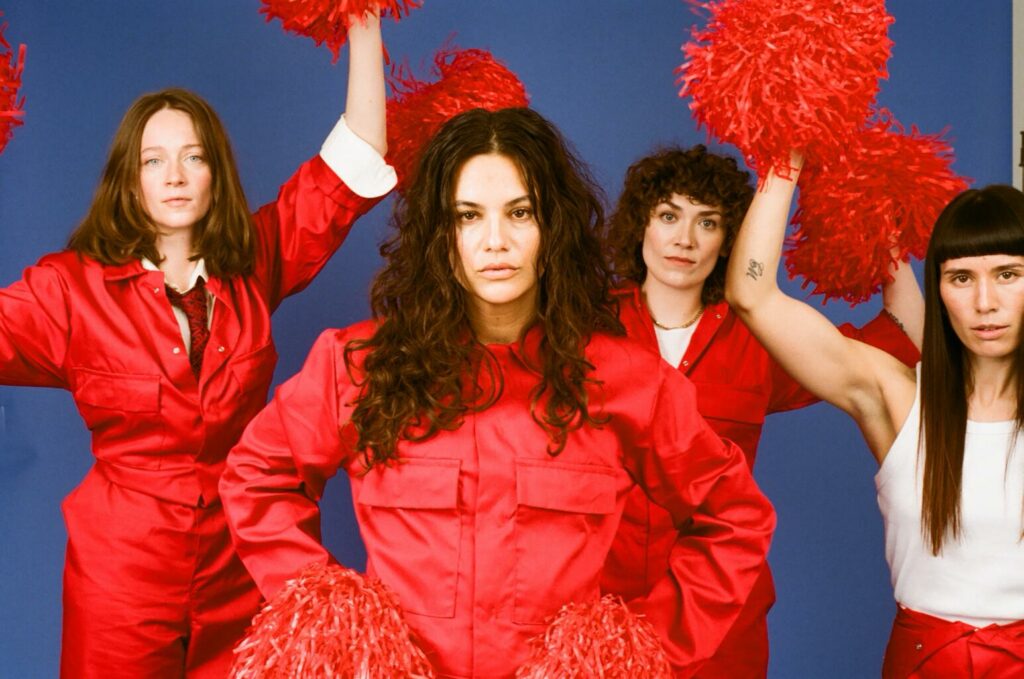
whynow: It’s been six years since you all got together, with Covid being a big event in the middle of that period, but you’re only now releasing your debut album. Do you think that time and the experiences you’ve had have led to a better record compared to if you’d rushed it early on in 2018 or 19?
Anna Friedberg: Well, I think we still could have released a good album back then! Maybe not as good because we obviously have more songs now. But, first of all, it must be said that I’m slow at making decisions, and I’m a perfectionist.
whynow: Do you think it would’ve been very similar lyrically, in terms of subject matter?
Anna Friedberg: I’ve definitely got better at writing and find it easier to write lyrics. I’ve become more confident and we’ve played so many live shows, including massive ones as support acts. The good thing is working out how to bring that live experience to the studio. I’m writing poetry all the time, my neighbour’s a writer and we give each other exercises: we write a word or phrase and the other person has to respond and send it back.
READ MORE: Deep Tan: ‘The Xenomorph is sexy. She’s shiny like latex’
whynow: What are your literary influences, and how do you navigate translating those influences between two languages, German and English, in your thoughts?
Anna Friedberg: When I was 11 years old, I already wrote my songs in English because when I was growing up, it wasn’t very common to have German songs on the radio – but now it’s completely different.
Only a few months ago, I wrote a song in German for the first time when I went into the studio with Hot Chip who we toured with in the US. I had so much fun writing German lyrics with Joe and Al, using lots of long German words. I was a bit scared because, with the English language, I can hide a little bit behind the words because it’s not my first language.
But I’ll admit, I find songwriting in German really cheesy. In English, you can come up with cool images or metaphors, and you probably can in German, but I find it hard not to sound like ‘Schlager’ [Central and Northern European pop music that is light and sentimental].
The English language isn’t very direct, so you can come up with lots of different ways of saying things, whereas Germans are very direct. I’m actually struggling with this in England! For example, “Let’s have dinner at some point,” basically means never.
whynow: What are your influences outside music?
Anna Friedberg: I’m really into Luis Bunuel, the surrealist filmmaker. For example, The Discreet Charm of the Bourgeoisie (1972) is a film in which he mocks the bourgeoisie throughout, bringing people together for a dinner, which, after the meal finishes, ends in the guests not being able to leave anymore. I also love Yorgos Lanthimos, who I’ve been a fan of since Dogtooth (2009), and Bunuel’s his favourite director, so it makes a lot of sense! You can see the inspiration from both of these in our music video for ‘Hello’.
Keep up to date with the best in UK music by following us on Instagram: @whynowworld and on Twitter/X: @whynowworld

